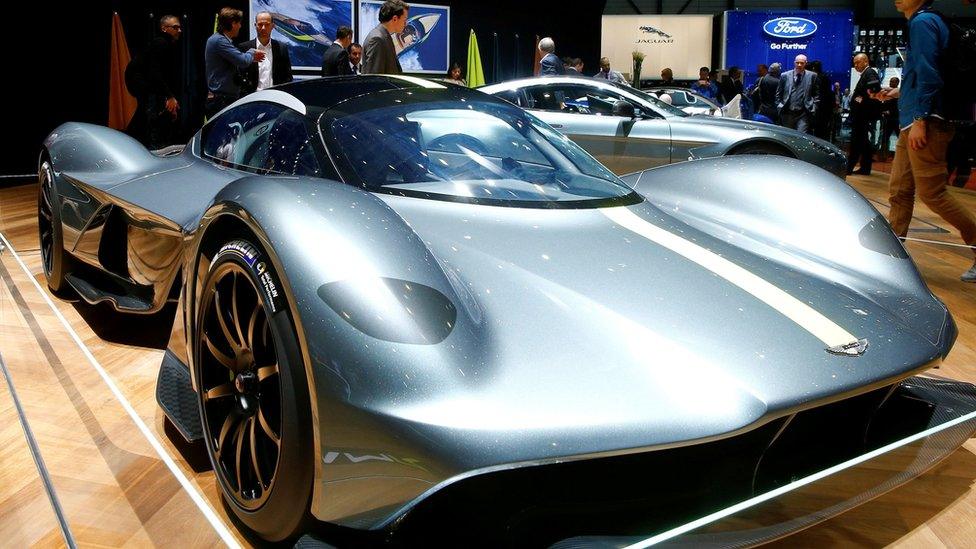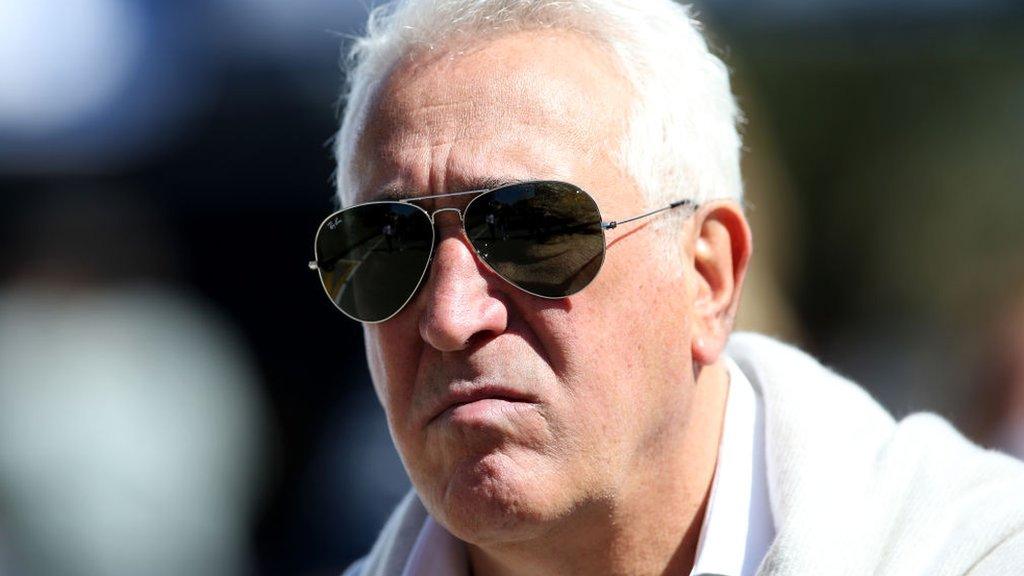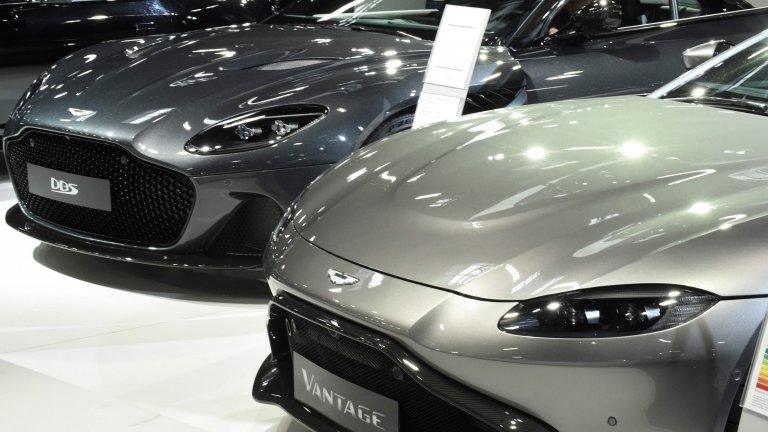Aston Martin sues car dealer in cash wrangle
- Published

Aston Martin has begun legal action against a Swiss dealer, accusing it of withholding customer deposits for its £2.5m Valkyrie sports car.
The carmaker says it will no longer work with the dealer, Nebula Project, and will now take deposits directly.
Nebula signed a deal in 2016 to help finance the Valkyrie and took some deposits from customers, to be used to fund development of the car.
Aston Martin said customers affected would still get their cars on time.
It also asked Swiss prosecutors to consider a criminal investigation.
Aston Martin Lagonda said it expected to take a £15m hit to profits this year as it tried to get back the money that was allegedly lost.
However, it said it still expected to achieve targets of 10,000 sales, with £2bn in revenues and £500m underlying pre-tax profits by 2025.
It is also ending agreements with AF Cars AG, which runs its St Gallen dealership in Switzerland and is led by Nebula board members, saying that some cars were sold in breach of agreements.
The Valkyrie car, part of Aston Martin's attempts to revive its fortunes after a period of financial hardship, has been billed as the fastest "street-legal" car in the world.
The firm's intention was to build a car that was equally at home on the racetrack and on conventional roads.
Fewer than 200 models are being produced and have already sold out.
Under the original contract, Nebula was to receive a commission on sales of the car, as well as Aston's Valhalla and Vanquish models.
Since the signing of that deal, Aston Martin has received cash injections from Canadian billionaire Lawrence Stroll and Germany's Mercedes-Benz.
The company said: "Both Aston Martin and its customers have been impacted by Nebula Project AG's and its board members' behaviour.
"Aston Martin is fully committed to supporting and working with those customers affected to ensure that they will still receive delivery of their Valkyrie programme vehicles as scheduled, prioritising customer relationships, despite the company not having received all the deposited funds."
Related topics
- Published2 March 2021

- Published27 October 2020
